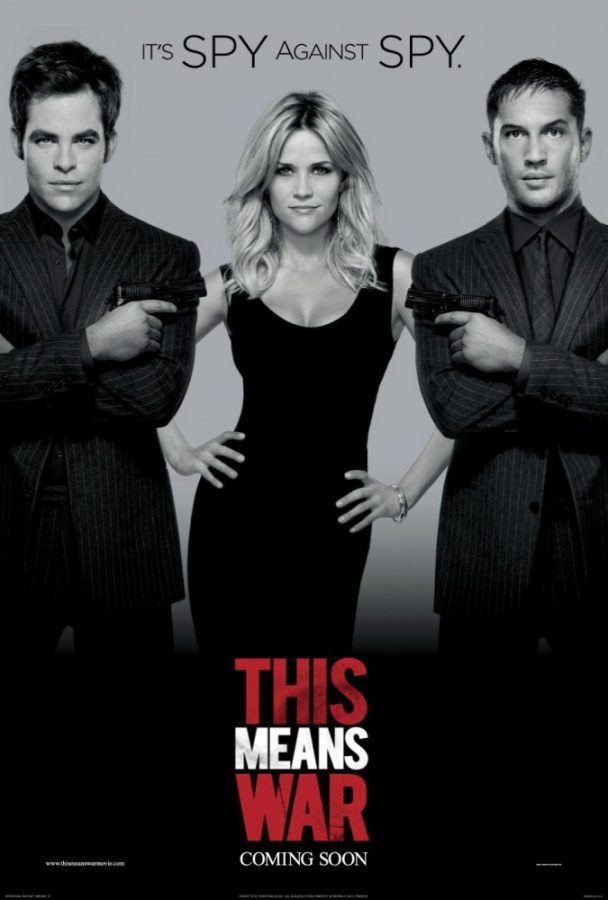Sexy to look at but hopelessly bereft of anything else, “This Means War” is every bit as unamusing to watch as its tonally confused trailer would have you expect. An empty-calorie exercise of little merit outside the occasional chuckle-worthy penis joke, this latest entry into director McG’s underwhelming canon takes what could have been an endearing concept and spins it into anything but an endearing film.
As with most February releases, the logline is easy and sweet: When two best friends — both high-ranking government assassins — fall for the same girl, they enter into a gadget-fueled “spy versus spy” battle for her affection. Of course, from a producer’s perspective, it’s easy to see how this idea would seem like gold. Even the exact same script, from increasingly in-demand scribes Timothy Dowling and Simon Kinberg, could have been more fun to watch in different hands.
But alas, McG’s rendition of “This Means War” is content to cavort through every one of the oh-so-groanworthy motions, leaving us with a film that’s less offensive for its simpleminded approach to the material than it is for thinking we’re too stupid to ask for anything else.
We open on FDR and Tuck (Chris Pine and Tom Hardy), two wisecracking CIA agents on a mission to stop a bad guy (I’d tell you why he’s bad, but I don’t think the filmmakers actually know). Naturally, the villain escapes, and our agents are handed the most humiliating punishment the CIA can offer: desk duty. Meanwhile, product testing executive Lauren (Reese Witherspoon) is stuck in a rut, struggling to cope with her ex-boyfriend’s recently announced engagement. Desperate, she signs up for an online dating service, and so the hilarity begins. She meets Tuck, then she meets FDR. She kisses Tuck, then she kisses FDR. She has a deep conversation with Tuck, then she has a deep conversation with FDR. And this goes on and on, somehow giddily aware of its own repetitiveness, for a whopping hour and 40 minutes.
The problem with “This Means War” is that it’s a film on autopilot. Once Tuck and Lauren meet, the story plays more or less like an extended musical montage, opting to run as a series of one-off slapstick gags instead of actually taking the time to settle into any one particular scene. Tuck shoots FDR with a tranquilizer dart. Cue laughter. FDR sets off the fire sprinklers in Tuck’s house. Cue applause. Wash, rinse, repeat.
After 45 minutes of this, we’re left feeling that we’re watching things happen while nothing actually happens. Lauren simply bounces between men, leading them both in the same direction as they bicker about who deserves her more.
As for the performances, they’re fine. Pine and Hardy are likable, as is Witherspoon, and the film does nothing to tarnish that. But it doesn’t do anything to help it either, which leaves us wishing these charming performers would lend their talents to something more worthwhile or, at the very least, something more fun. Of note, however, is the cinematography by Russell Carpenter (“Titanic”), which is beautiful enough in its own right to warrant a viewing. If cinematography isn’t your thing, I’d skip “This Means War” altogether … unless you really enjoyed last year’s “Just Go With It,” in which case, you should get to the nearest theater immediately.









